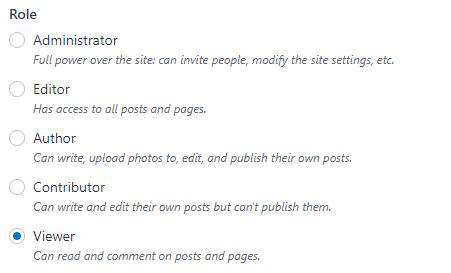WordPress User Roles
Last Updated :
22 Mar, 2022
WordPress is an open-source Content Management System that is totally based on PHP and MySql which is used to create a dynamic website. Matt Mullenweg developed WordPress and Written in PHP language. WordPress is one of the most popular interfaces that allow users to customize and manage the website from its back-end content management system. It is used to organize the whole process of creating, storing, and showcasing web content in an optimal way. WordPress was initially developed as an improvement tool that enhances the regular typography of day-to-day writing.
In this article, we are going to discuss the User Roles in WordPress.
User Roles in WordPress: Roles are created to give permissions to a particular user to access the WordPress site. Each and every user has their own unique role. Allocation of these roles can be done only by the Admin.
Following are the few pre-defined roles available in WordPress. Roles from the role list as shown in the below screenshot are discussed later in the article.

- Administrator − The Administrator role has full power and all the rights. An Admin can do everything on the WordPress site like inviting more people, modifying the site settings, etc.
- Editor − The Editor has only access to add, edit, publish and delete all posts, pages, comments, categories, etc but they cannot control everything. They can only be able to create, publish, edit or delete posts or pages.
- Author − The access provided to the Author is only to write posts, upload pictures, edit, and publish their own posts.
- Contributor − The Contributor can only able to write and edit their own posts but they can’t publish them. Once the Post gets published then only the contributor cannot make any changes.
- Follower − The access provided to the Follower is only to read and comment on the posts. They can be signed in to your account to receive updates.
- Viewer − The access provided to the Viewers is only to view your posts and comment on the posts.
That’s it, you have now successfully learned about the User Roles in WordPress.
Share your thoughts in the comments
Please Login to comment...